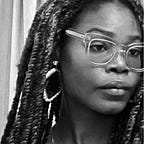I am voting for the first time next year. Here is why.
I was a panellist at the #YVote festival yesterday, and everyone in attendance agreed that something different about this election season is evident in Nigerians’ intense interest in and readiness for it. This is supported by data, which shows that INEC added 10.49 million new registrations this year to the 84 million it had in 2019. What’s more intriguing is that 84% of these new registrants are young people, who account for 26.6% of Nigeria’s 214 million people and 54.4% of the country’s 50.3% voting population (estimated utilizing data from DataReportal). The youth are the ones who should, in all fairness, use their voting power to guide this nation toward a better future.
I sincerely hope that we will, as recent events like #ENDSARS, the ASUU strike, #Twitterban, and the proposed removal of comprehensive sexuality education from our basic education curriculum have demonstrated how much our indifference to politics and governance can and will cost us. Including our safety, jobs, access to quality education and healthcare, and, worse still, our lives.
Nigeria has documented 1,718 deaths as a result of terrorism and organized crime in just the third quarter of this year. While the purchasing power of Naira has sharply decreased between September 2021 and September 2022, inflation increased from 16.63% to 20.77%, plunging Nigerians deeper into extreme poverty (NBS).
Our legislators are introducing repressive laws like those on hate speech, social media, and cross-dressing while rejecting progressive ones like the gender bills. Instead of institutionalizing more effective security measures, favourable monetary policies, interventions, employment schemes, and creating opportunities for foreign investment.
I think that young Nigerians have had enough; they now know who to avoid voting for if they want to advance in life, and they also understand the importance of choosing representatives who are forward-thinking enough to hasten recovery.
In a similar vein, because only 7.89% of women are represented in the final list of candidates, I anticipate that, given that 50.6% of registered voters are female, they will vote for candidates who will represent their interests.
Next year, I look forward to voting for candidates who are:
I. Brave enough to confront insecurity, end conflict, and stop ethnic wars.
II. Progressive and innovative.
III. Accessible and accountable to the people.
IV. Inclusive in their leadership.
Why are you voting next year?
